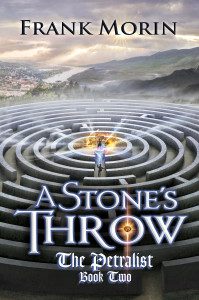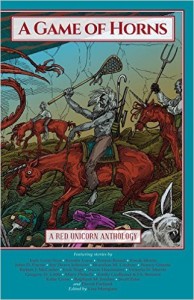
These days the most dangerous thing I experience is driving through San Francisco on my motorcycle. While stressful in it’s own right, it’s a far cry from my time overseas. There is one thing that the experience has taught me that still holds true today. Stress is a part of life, a necessary element even. It’s stress that makes us strive to become better. It’s stress that keeps us moving when we just want to stop. Perhaps it’s the fear of failure or the need to finish a blog post before a deadline. Stress doesn’t have to be bad, it’s can just be another part of being alive. As writers, stress is another material to be molded into our work. We use it as someone does an IV of adrenaline. We turn the knob and the readers pulse starts to speed up. Turn it a little more, and they’re sweating.
Stress is powerful, yet just like the adrenaline, you have to be careful about the dosage. We’ve all heard about the soldiers who return with PTSD. I’ve personally watched friends and family deal with traumatic stress in different ways. Some pull away from the world, while others fight against it. The stories aren’t pleasant, and neither is the experience. Our readers have one benefit over the soldiers in that they can put the book down and walk away. When I was driving convoys, I was in action and alert for 10-12 hours a day. I know how draining it is. I also know the pure bliss of just being able to decompress and relax after these drives. I was lucky in that I was able to balance the stress and the joy pretty reliably. I was never truly burned out as some of my brothers at arms were. I still learned the lessons and am here with a story, and hopefully some advice, to tell.
Stress is a powerful tool in our arsenal. We can use it to keep the pages turning and the tension high. We can also abuse it and draw it out far too long and lose readers if we’re not careful. We need to provide those small moments of blissful respite from the action. The line between high tension and reward is a thin one, and should be walked carefully. The more you can build the stress in a sequence may give a larger payoff, but you risk burning people out.
My time in the military has shaped me into who I am and what I write. I draw upon that tension and discipline I learned to try to write exciting and fulfilling stories. Hopefully you haven’t had to deal with anything as stressful as this, but I think you can probably relate it to your own experiences. It’s our special power, after all. Take stories of others and elaborate. Imagine and create the future. Keep the tension high, and relax when needed.
It’s the beat of the drum that mimics the heartbeat of the reader. We write, and roar with that thunder!




